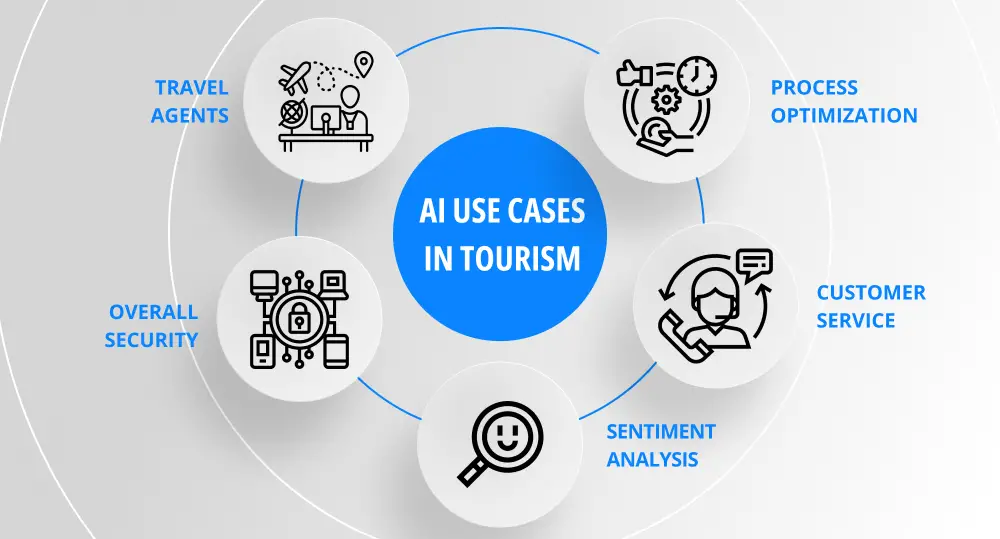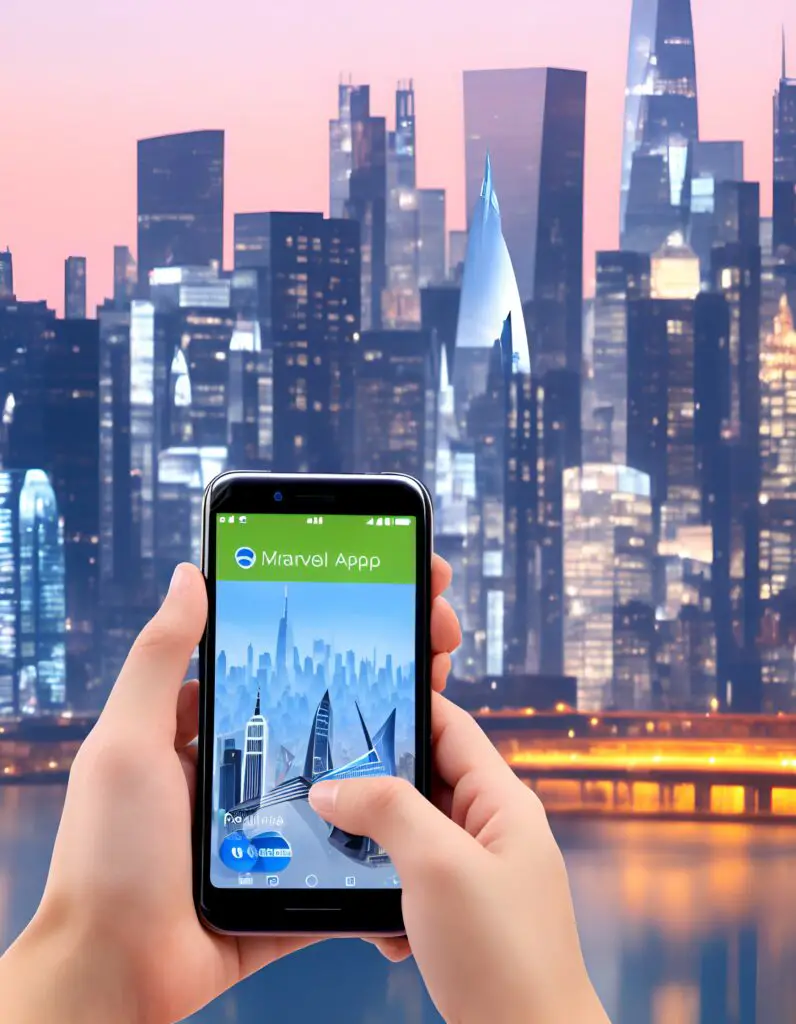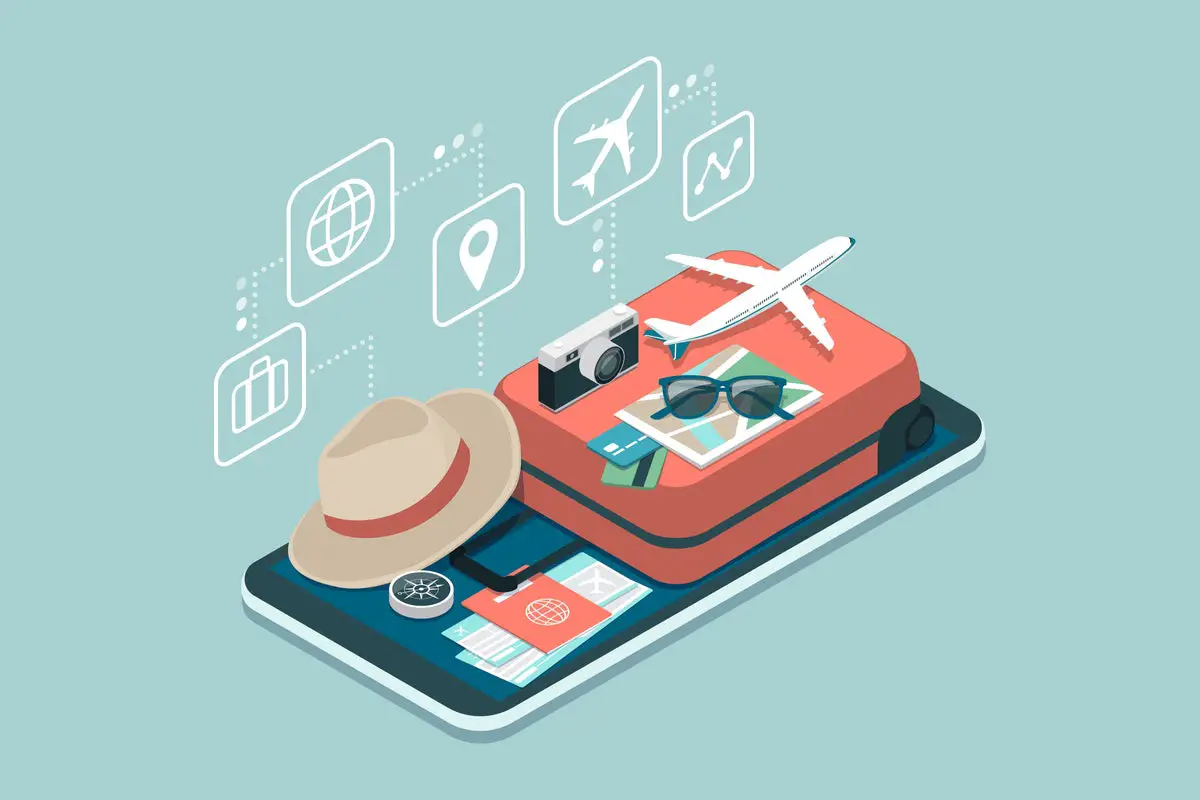AI in Travel and Tourism: Enhancing the Journey

Artificial intelligence (AI) is rapidly transforming various industries and sectors, and the travel and tourism industry is no exception. AI is enhancing the travel experience and making it more personalized, efficient, and memorable for travelers. From AI-powered chatbots and virtual assistants to intelligent recommendation engines and image recognition technology, AI is revolutionizing the way we plan, book, and enjoy travel.

Personalized Travel Recommendations:

AI algorithms analyze vast amounts of data, including a traveler’s past preferences, search history, location, and social media activity, to provide personalized travel recommendations. These recommendations are tailored to individual tastes and preferences, ensuring that travelers discover hidden gems and unique experiences that perfectly align with their interests. AI-driven recommendation engines also adapt in real-time, learning from user feedback and preferences to provide even more accurate and personalized suggestions.
Seamless Travel Planning and Booking:
AI-powered chatbots and virtual assistants are transforming travel planning and booking processes, making them more accessible and efficient. Natural language processing (NLP) technology enables these virtual assistants to understand complex queries and respond in a natural and conversational manner. They can assist travelers with finding the best flight deals, hotel accommodations, tour packages, and activities, all through a simple chat interface. The ability to interact with a virtual assistant 24/7 streamlines the planning process and saves travelers valuable time.
Real-time Travel Updates and Alerts:
AI algorithms monitor real-time data sources, such as weather forecasts, traffic conditions, flight statuses, and hotel availability, to provide travelers with up-to-date information about their journey. This allows travelers to make informed decisions and adjust their plans accordingly. Mobile apps with AI capabilities can send personalized alerts and notifications to travelers, keeping them informed of delays, cancellations, or changes in their itinerary.
Enhanced Airport and Hotel Experiences:
AI is transforming airport and hotel experiences by automating processes and enhancing the overall guest experience. AI-powered kiosks enable self-service check-in, reducing wait times and queues. Facial recognition technology facilitates seamless boarding and room access, eliminating the need for physical tickets or keys. AI-driven robots can assist guests with tasks such as luggage handling, room service delivery, and concierge services, providing a more personalized and efficient experience.
Virtual Tours and Immersive Experiences:
AI-powered virtual reality (VR) and augmented reality (AR) technologies offer travelers immersive experiences before they even embark on their journey. VR tours allow travelers to virtually explore destinations, hotels, and attractions, giving them a realistic preview of their trip. AR applications can overlay digital information onto the real world, providing travelers with interactive guides and recommendations. These technologies help travelers make informed choices and plan their itinerary more effectively.
Responsible and Sustainable Travel Practices:
AI can also play a crucial role in promoting responsible and sustainable travel practices. AI algorithms can analyze travel patterns, energy consumption, and resource usage to identify areas where improvements can be made. AI-driven recommendations can encourage travelers to choose eco-friendly transportation options, stay in sustainable accommodations, and engage in responsible tourism activities. This helps minimize the environmental impact of travel and supports local communities.
In conclusion, AI is revolutionizing the travel and tourism industry by offering personalized recommendations, seamless planning and booking processes, real-time updates, enhanced airport and hotel experiences, immersive virtual tours, and support for responsible practices. As AI continues to advance, we can expect even more innovative and transformative applications that will further enrich the travel experience and make it more accessible, enjoyable, and sustainable.## Ai In Travel And Tourism: The Journey
Executive Summary
Artificial intelligence (AI) is rapidly changing the travel and tourism industry. With its ability to automate tasks, provide personalized recommendations, and analyze data, AI is enabling businesses to create more efficient, effective, and engaging travel experiences for their customers.
Introduction
AI is no longer a distant concept; it is already transforming the world of travel. From chatbots and virtual assistants to AI-powered robots, AI is improving the customer experience in the travel sector in various ways. This article will explore the impact of AI on the industry in more depth, elaborating on key subtopics with specific examples and statistics to emphasize the significant changes taking place.
AI-Powered Chatbots and Virtual Travel Agents
Chatbots have transformed travel bookings, providing 24/7 services and answering customer questions through natural language. Advanced AI-powered chatbots can access vast data and offer real-time recommendations while handling complex travel requests.
- Enhanced Customer Service: AI chatbots provide instant assistance, removing wait times and language barriers, offering 24/7 support.
- Personalized Recommendations: Chatbots gather customer preferences and past experiences to deliver tailored suggestions, such as destinations, activities, and special offers.
- Real-Time Information: AI-enabled chatbots deliver real-time updates on flight delays, gate changes, and nearby attractions.
AI in Travel Route Planning
AI algorithms analyze customer data to suggest personalized travel routes that optimize time and budget constraints. This service even takes into account individual interests, weather conditions, and popular attractions.
- Optimized Travel Routes: AI-planned travel routes consider various factors to provide the most efficient and convenient journey plans.
- Interactive Maps: AI-driven interactive maps offer 360-degree views of popular destinations, allowing users to get a feel for their chosen locations.
- Personalized Itineraries: AI algorithms create personalized itineraries based on individual preferences and budgets, recommending places to visit, restaurants to dine in, and activities to engage in.
Using AI for Fraud Detection and Risk Management
By leveraging AI algorithms, travel companies can quickly identify suspicious transactions, irregular booking patterns, and potential fraud, leading to safer online payments. Additionally, AI can mitigate risks by predicting flight delays, cancellations, and disturbances.
- Enhanced Online Security: AI algorithms analyze transactions and user behavior in real-time, detecting anomalies that could indicate fraudulent activities.
- Risk Management: AI-powered risk assessment tools monitor and predict potential issues such as flight delays, cancellations, and natural disasters, enabling companies to take proactive measures.
AI’s Role in Language Translation and Accessibility
AI-powered translation tools break down language barriers, making travel information and communication accessible to international travelers. Furthermore, AI-enabled robots assist individuals with physical disabilities, improving mobility and enhancing the overall travel experience.
- Seamless Communication: AI-powered translation tools provide real-time translation of signs, menus, and conversations, allowing travelers from various language backgrounds to communicate seamlessly.
- Accessible Travel: AI-enabled robots assist individuals with reduced mobility by providing guidance, luggage assistance, and accessible room and vehicle accommodations.
AI in Travel Data Analysis and Personalization
AI algorithms analyze vast amounts of data to offer personalized recommendations to travelers. They create targeted marketing campaigns, recommend tailored travel experiences, and improve customer engagement through personalized communication.
- Travel Trend Analysis: AI algorithms analyze travel data to uncover trends, enabling businesses to stay ahead of the curve and adapt to customer preferences.
- Predictive Analytics: AI-driven predictive analytics anticipate traveler behavior and suggest destinations and experiences that align with their tastes and requirements.
- Enhanced Marketing: AI-powered marketing campaigns analyze customer preferences and past bookings to send personalized offers, discounts, and recommendations.
Conclusion
The integration of AI into the travel and tourism industry is a transformative journey. AI’s ability to automate tasks, deliver personalized recommendations, and efficiently process data has improved the traveler’s experience. As AI continues to advance, we can anticipate even more significant disruptions and innovations in the travel sector, forever reshaping how we plan, book, and experience travel.
Keyword Tags:
- Artificial Intelligence
- Travel and Tourism
- AI-driven Chatbots
- AI Travel Route Planning
- Personalized Travel Recommendations

Hey there,I would like to say that this article is very interesting and informative however, i’d like to know: How can AI help to make travel more accessible for people with disabilities the same way it’s enhancing the journey for everyone else?
I do not trust this AI stuff is AI ready to take over the travel industry? isn’t it too risky?
I think this is a great development in the travel industry. AI can help to make travel more efficient and convenient, and it can also help travelers to discover new and exciting destinations. I’m excited to see how AI will continue to develop and be used in the travel industry in the future.
I disagree. I think AI is a threat to the travel industry. It’s going to take away jobs from human travel agents and make it more difficult for small travel businesses to compete.
Oh, the irony! AI is supposed to make travel more accessible, but it’s only going to benefit those who can afford it.
Wow, AI is going to make travel so much better. I can’t wait to have a robot plan my entire trip and tell me what to do every step of the way.
I’m not sure how AI is going to enhance my journey. Is it going to carry my bags and make me a cup of tea?
I’m really excited about the potential of AI in the travel industry. I think it has the potential to make travel more affordable, accessible, and enjoyable for everyone.
I’m cautiously optimistic about AI in the travel industry. I think it has the potential to improve the traveler experience, but I’m also concerned about the potential for job losses and privacy concerns.